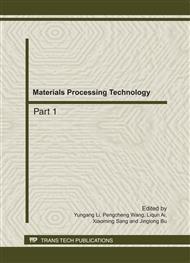p.2512
p.2517
p.2523
p.2529
p.2537
p.2541
p.2552
p.2556
p.2561
The Optimization of Flexible Job Shop Scheduling Problem Based on Improved Dual Coding Non-Dominated Sorting Genetic Algorithm
Abstract:
In order to optimize the multi-objective flexible job shop scheduling problem (FJSP) roundly, multi-objective mathematical model is established, including makespan, maximal workload, total workload and total tardiness. In this paper a dual coding method which takes operation arrangement and machine selection into account is employed, and designed new crossover and mutation methods, the infeasible solutions are avoided. In order to deal with the multi-objective optimization problem, a new non-dominated sorting method is introduced, which can get the Pareto optimal solutions quickly and correctly by dividing the whole population into three parts. Example shows that the algorithm is efficient.
Info:
Periodical:
Pages:
2537-2540
Citation:
Online since:
July 2011
Authors:
Price:
Сopyright:
© 2011 Trans Tech Publications Ltd. All Rights Reserved
Share:
Citation:


